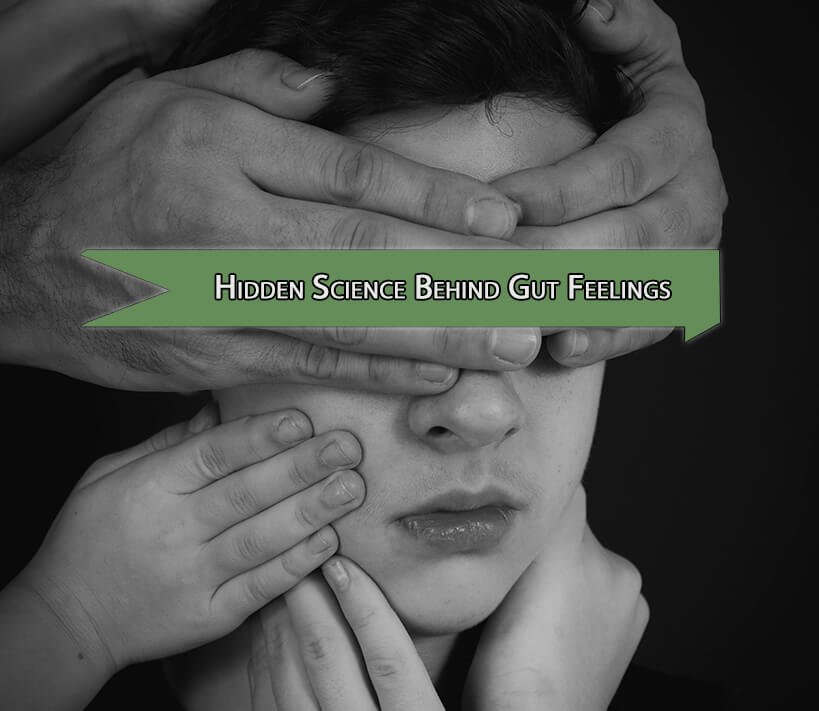Gut feelings are also called intuition or the sixth sense. They are those hunches or instincts that provide immediate insight without conscious reasoning. We have all experienced moments where, without having all the facts, something feels right or wrong at the moment. These gut feelings have fascinated humans for centuries, and now science is beginning to uncover the psychological and physiological reasons behind them.
In this blog, we will explore the psychology behind gut feelings and how they influence our everyday decisions. We will also take a closer look at how we can strengthen our connection with our gut instincts and use them effectively in our lives.
Gut Feelings
Gut feelings are quick judgments we make without relying on rational thinking. They come from an inner sense of knowing, our body sends us signals we instinctively trust. This sensation is linked to the abdominal region, which is why we call it a “gut feelin” or “gut instinct”. Though it may seem mysterious, the gut is one of the body most advanced systems. It is packed with neurons, hormones, and enzymes that influence how we think and act. The connection between the gut and brain is powerful, shaped by a subtle psychoaura, a deep interplay between mind and body. Thats why many call the gut our “second brain”. These instincts show that the gut plays an active role in decision-making.
The Psychology Behind Gut Feelings
The psychology of Gut feelings can be better understood by considering the mind-body connection. The gut is linked to millions of neurons that communicate directly with the brain through the vagus nerve. This intricate network of communication enables us to sense and interpret various physiological signals, even before we consciously recognize them, influencing our emotions, stress responses, intuition, and subconscious reactions in powerful ways that shape everyday choices and long-term behaviors.
Research has shown that our brains can process vast amounts of information on a subconscious level. When we experience gut feelings, it may be the result of our brain drawing on past experiences, emotional states, and subtle environmental cues. The brain is constantly processing information, even when we are not aware of it, and when we receive a gut feeling, it is often a reflection of this invisible mental processing.
The Role of the Subconscious Mind
Our subconscious mind plays a role in shaping our gut feelings. The subconscious stores memories, emotions, and past experiences. It creates patterns and associations to guide how you should react to new situations. When you encounter something similar to a past experience, your subconscious quickly sends a signal to your brain, triggering a gut feeling and prompting action.
For example
If you have a history of negative experiences with a particular person or environment, your subconscious alters you to avoid that person or situation. On the other hand, positive experiences lead to gut feelings of attraction and a sense of comfort in similar circumstances.
How the Brain and Gut Communicate
The brain and gut are in constant communication, and this connection plays a significant role in decision-making processes. The enteric nervous system (ENS) in the gut is primarily responsible for regulating digestion, but it also can influence emotions and behavior. The ENS contains more than 100 million neurons and communicates with the central nervous system, enabling a rapid feedback loop between the gut and the brain.
The science behind gut feelings reveals that when we experience a gut feeling, the brain is actually processing information from the gut and using it to make instinctive judgments. This process includes everything from detecting subtle environmental cues to responding to physiological signals, such as changes in heart rate or breathing patterns.
The Science of Intuition
Intuition often feels like deep wisdom or inner insight, but it actually comes from the brain ability to process information quickly and unconsciously. Scientists propose that intuition arises from the brain capacity to recognize patterns and draw on past experiences to predict future outcomes. In essence, the brain is constantly scanning the environment, comparing it to stored memories, and generating quick judgments. When a situation aligns with these internal patterns, we experience it as a “gut instinct”. This process enables us to make swift decisions without deliberate analysis, particularly in complex or high-pressure situations.
The Power of Emotional Intelligence
Emotional Intelligence is another key factor explored in the science behind gut feelings. Individuals with high EQ are more in tune with their own emotions and the emotions of those around them. This heightened emotional awareness enables them to detect subtle cues, such as tone, body language, or shifts in mood, that others may overlook. As a result, they make intuitive decisions with greater empathy, awareness of context, and a deeper understanding of social dynamics.
Cultivating Your Gut Instincts
To develop a stronger connection with your gut feelings, consider the following ways to enhance your instincts.
1. Practice Mindfulness exercises, as they help cultivate your gut Instincts by enhancing your awareness of internal signals, emotions, and subtle bodily cues that guide intuitive decision-making.
2. Take some time to reflect on your past decisions and observe the role your gut feeling played in them. This will help you understand when and why your instincts were accurate.
3. Pay attention to physical sensations, as these can be indicators of how your body is reacting to a situation.
4. It is essential to consider logic and reason; do not discount your gut feelings entirely. Trust your inner wisdom and let it guide you, especially in situations where you have little time to make a decision.
Conclusion
Gut feelings are more than fleeting emotions, they are rooted in the complex interplay between the brain, body, and subconscious mind. Far from being irrational, these intuitive insights often arise from the brain deep reservoir of memories, experiences, and emotional Intelligence. By understanding the science and psychology behind gut instincts, we can begin to appreciate them as a powerful tool in our decision-making decision-making arsenal, helping us navigate life with greater clarity and confidence.




